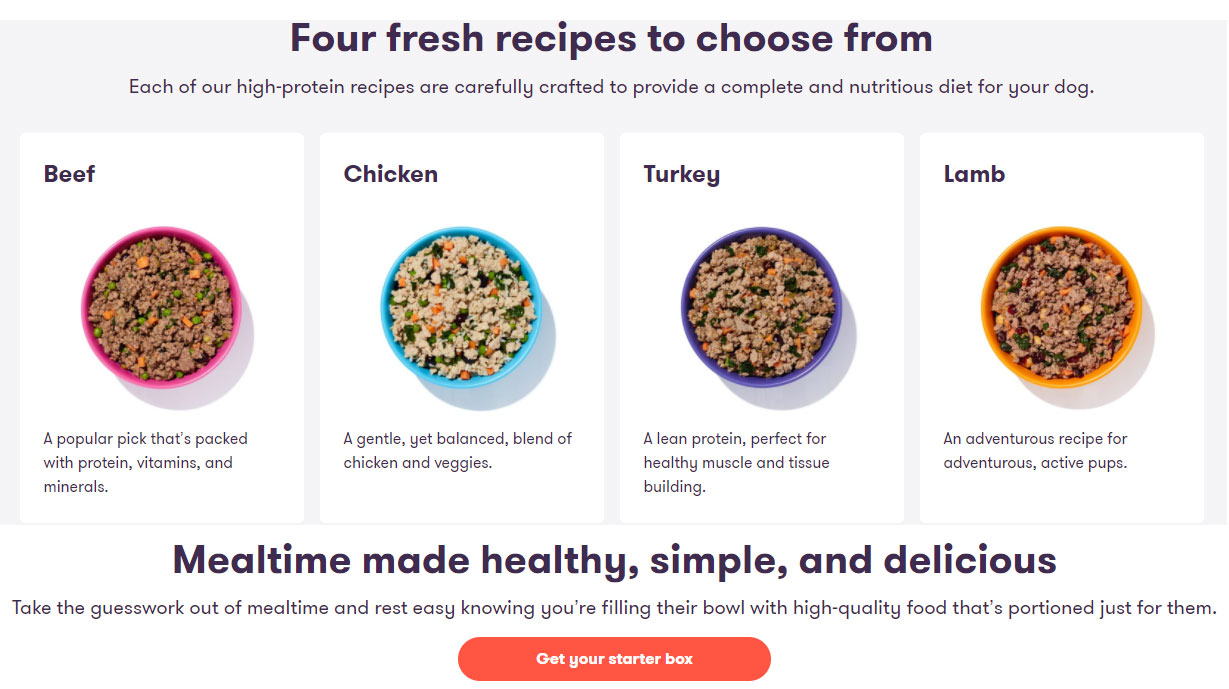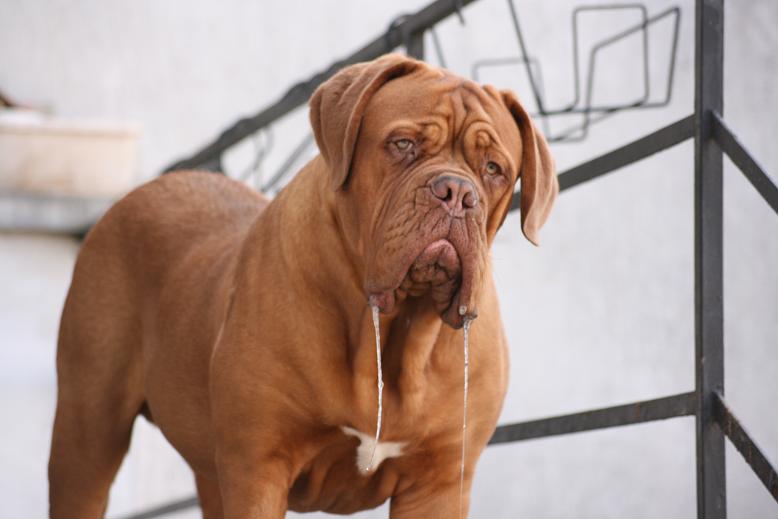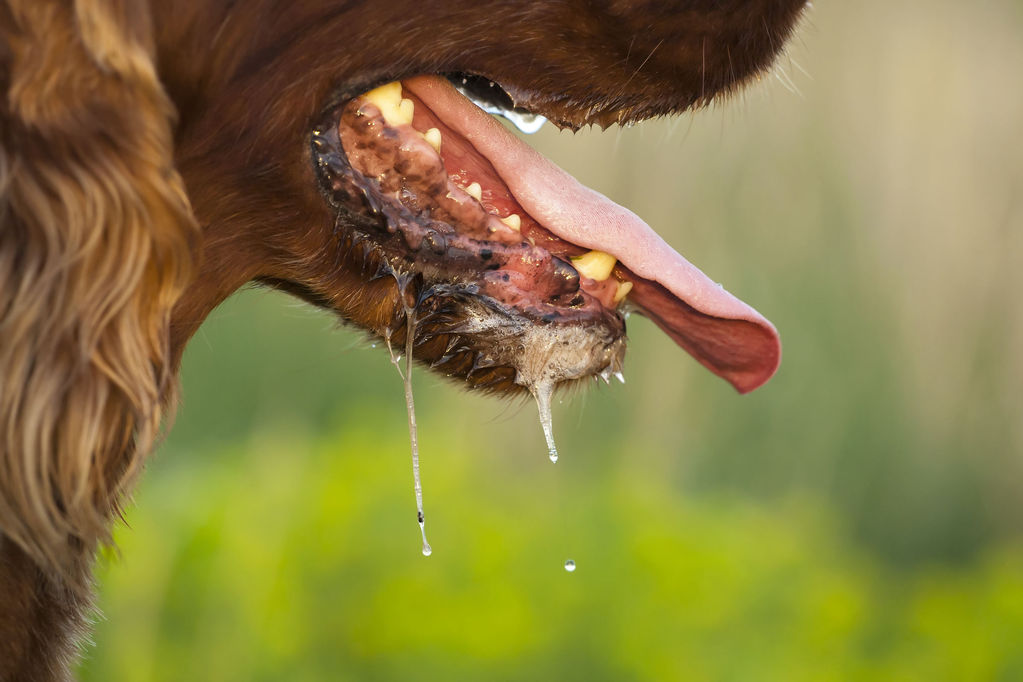Why my dog drools
Some dogs are known to naturally drool very generously, but in all others excessive saliva production can be a sign that something is wrong with their health.
Hypersalivation, like fever or coughing, is a symptom, a sign of an underlying problem, and usually warrants a trip to the vet. If you notice that your dog is suddenly drooling more than usual, you'd better look for other signs that could help you determine the origin of his problem and the right thing to do.
What is hypersalivation in dogs?
When a dog drools more than usual, it is called hypersalivation, a phenomenon characterized by an abnormally abundant production of saliva. We distinguish hypersalivation from pseudo hypersalivation which occurs when the dog drools excessively, not because he produces too much saliva, but because he cannot swallow the saliva he produces in normal quantity.
In medical jargon, hypersialorrhea, hypersialia or ptyalism is the term used to describe hypersalivation. It's important to note that seeing a trickle of drool from your dog's lips is not the only symptom of hypersalivation.
A dog that produces too much saliva may also lick his lips frequently or swallow more often than usual to swallow his excess saliva.

Dogs that drool: the main reasons
There are many reasons why your dog may drool excessively, not all of which are pathological. Gastric or oral diseases may be involved, and your dog may also drool because he's hungry, afraid or relaxed... So the range of possibilities is extremely wide!
My dog drools, he's hungry
Let's start with one of the most obvious reasons for hypersalivation in dogs. Your dog may be salivating in excess simply because he's hungry or because he's attracted to a tantalizing scent. If your pet starts salivating while you're cooking or while he's waiting for his meal, chances are it's his sweet tooth that's at fault.
The prospect of a meal naturally stimulates saliva production in preparation for chewing and digesting food. With his highly sensitive nose, a dog can be attracted to minute smells that you didn't notice - like the neighbor's roast chicken.
My dog drools, he is relaxed
Sometimes a dog that is a little too relaxed can start drooling a lot, for example when he is taking a nap or when he is cuddling his owner. The mechanism of this phenomenon is not fully explained, but it is quite possible that the dog just forgets to swallow his saliva or lets more drool through by relaxing the muscles of his jaw, lips and mouth.
My dog drools, he is stressed
Stress is a pernicious condition in dogs, often expressed in a variety of symptoms that make it extremely difficult to diagnose - many owners are unaware that their dog is anxious on a daily basis. Hypersalivation can be a manifestation of stress, and if your dog is drooling it may be that he is anxious, even if he seems quite serene to you on a daily basis.
In this case, it is advisable to investigate further for other signs of anxiety, which are often difficult to detect in dogs. Note that hypersalivation can be a sign of latent stress, caused by a silent permanent anxiety, or a sudden fear, following an emotional shock, for example caused by a car ride or a firework.
My dog is drooling, he has been poisoned
Poisoning can cause hypersalivation in dogs for three major reasons: the animal may drool because it did not like the taste of the poison ingested, because the toxins have reached its nervous system, or because the poison has caused digestive damage that makes it nauseous. In fact, hypersalivation is very typical of an animal that has tasted a substance whose flavor it does not appreciate. There is no need to be alarmed, as it may be a relatively harmless substance that he just didn't like.
Nerve damage is also typical of poisoning, and hypersalivation may result from neurological damage causing either excessive saliva production or swallowing dysfunction. Finally, many toxins can attack the mucous membranes of the dog's mouth, stomach, and intestine, causing nausea, which is essentially a hypersalivation phenomenon.
If you suspect your pet has been poisoned, quickly search for the toxin in your yard or home. It's important not to delay going to the veterinarian, but finding the product will help the veterinarian know how best to treat your pet.
If you are able to find the product, contact the Animal Poison Control Center for information on how to proceed. Never attempt to induce vomiting or drinking in a poisoned dog without the approval of a veterinarian or the Animal Poison Control Center. Improperly performing these maneuvers may well aggravate the dog's case, or even cost it its life.
My dog is drooling, he is nauseous
As mentioned in the previous point, hypersalivation is a typical symptom of nausea in dogs. Nausea itself is not a disease, but a symptom of an underlying disorder. Gastric pain, the result of stomach inflammation from viral, parasitic or bacterial infection or from eating indigestible food, for example, is often the cause. More serious conditions can also make your dog nauseous, such as the dreaded intestinal obstruction, Stomach Dilation-Torsion, or certain tumors of the digestive tract.
My dog is drooling, he has an oral disease
The dog's mouth is the site of many diseases often resulting from an excessive accumulation of tartar, but also from viral or bacterial attacks. Periodontal disease in dogs can cause pain and discomfort, manifested by unusual drooling. Oral edema and ulcers can also prevent the dog from swallowing saliva properly, causing pseudo hypersalivation.

Drooling dog: what to do
Analyzing the context of your dog's hypersalivation is essential to determine the right course of action. If your dog has always drooled a lot, which is common in flat-nosed dogs (Boxer, Bulldog, etc.) and in dogs with hanging lips (Cane Corso, Saint Bernard, etc.), there is no need to worry. The morphology of your dog's whisker pads is probably to blame.
It is not relevant to panic when hypersalivation occurs in a puppy, as it may be a sign that he is teething. However, since young dogs are particularly fragile, a call to your veterinarian to make sure your dog is safe is a good idea.
On the other hand, if your dog's hypersalivation is sudden or accompanied by other symptoms, it's a good idea to look at the health of his mouth first, then his stomach. To do this, it is highly recommended that you consult a veterinarian who will know exactly what to look for and can make a reliable diagnosis and implement proper treatment if needed.
The bottom line is that if your dog suddenly starts drooling abnormally, don't wait too long before visiting a veterinarian. Hypersalivation can be caused by severe disorders, such as Stomach Dilation-Torsion, that are life-threatening for your dog in the very short term.
FAQ
Why does my dog drool a lot?
There are many reasons why your dog may drool excessively. It can be the morphology of his mouth or his state of mind (relaxed, stressed, happy...) which is at the origin of this drooling. However, more serious disorders may also be involved. If your dog's hypersalivation is sudden and accompanied by any other symptoms (signs of pain, lack of appetite, fatigue, prostration, vomiting, etc. ), it is essential to get your dog to a veterinarian quickly.
My puppy is drooling, why?
A puppy that drools profusely is often teething, but it is highly recommended to consult a veterinarian to be sure. Since puppies are still fragile, it would be dangerous to miss an oral pathology, a poisoning or any other disease that could result in hypersalivation.
My dog is drooling, what should I do?
A dog that drools excessively and abnormally, that is to say when it is not particularly from a breed with drooping lips or a flat muzzle, is probably suffering from oral discomfort or gastric pain. It is strongly advised to consult a veterinarian to soothe the pain and make a reliable diagnosis in order to rule out a possible serious disease.
Does my dog drool, does he have rabies?
It is very unlikely that your dog is drooling because he is infected with rabies, although hypersalivation is indeed one of the symptoms of this serious disease. If your pet is foaming with drool, it is likely that it has tasted something it does not like and/or has been poisoned. Quickly look for the toxin in his environment (plants, drugs or chemicals, etc.) and don't delay in contacting a veterinarian.
Fortunately, a dog that drools is not always in danger, far from it! However, it is important to note that hypersalivation is a symptom like any other and can indicate a serious illness.
If your dog is drooling in an unusual way, take the time to examine him closely and look for any abnormalities in his behavior (lack of appetite, unusual posture, fatigue, etc.).
The presence of concomitant symptoms should be considered as an aggravating factor and prompt you to consult your veterinarian.

